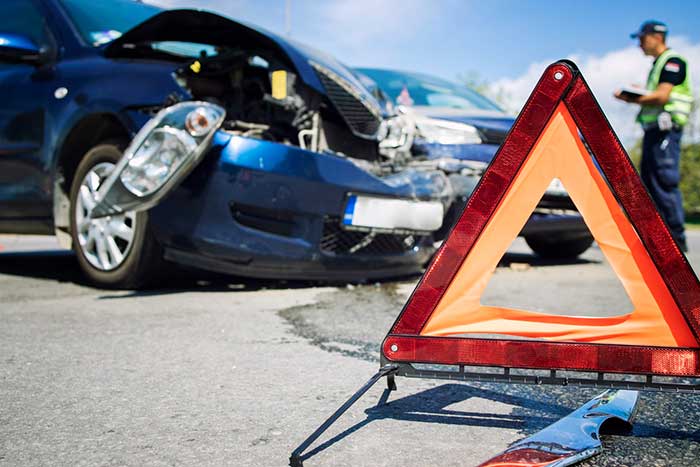The Road’s Unpredictable: Vehicular Legal Protection Is Needed

Every time we get behind the wheel, we enter a world of uncertainty. The road can be an unpredictable place, with a multitude of factors that can lead to accidents and legal complications. That’s why it’s essential to have vehicular legal protection in place to safeguard our rights and provide us with the necessary support when things go wrong.
Road accidents can happen in the blink of an eye, regardless of how cautious and responsible we are as drivers. A momentary lapse in concentration, adverse weather conditions, mechanical failures, or the negligence of others can all contribute to a collision.
Unfortunately, the aftermath of such accidents can be complex and overwhelming, involving medical bills, insurance claims, property damage, and legal disputes. Vehicular legal protection ensures that individuals have access to the necessary legal assistance and representation to navigate these challenging situations.
Why Vehicular Legal Protection is Mandatory?

Vehicular legal protection is not just an optional add-on; it is an essential safeguard that should be mandatory for every driver. The road can be a dangerous place, and accidents can happen to even the most careful drivers. Having comprehensive legal protection ensures that individuals have the necessary support and resources to navigate the legal complexities that arise from vehicular incidents. Here are some reasons why vehicular legal protection should be mandatory:
1. Statistics Relating To Average Time Spent Driving
How much do you drive on a daily basis? It can be a strange thing to think about, but if you sit back and crunch the numbers, you may be surprised. If your work is five miles from your home, a five day workweek predicates fifty miles of driving.
If you have on average one errand a week which requires you to go three miles out of your way, that works out to 224 miles a month. That works out to 2,688 miles a year. But you know you likely drive much more than that annually.
Generally, you can expect to drive between 8,000 and 15,000 miles a year. In ten years, you will have driven between 80,000 and 150,000 miles. Do you really think you can drive that much and not get into an accident?
If you add an average of 45 MPH into your calculations, at a minimum you’re looking at 1667 hours of driving in ten years, a maximum of 3,125 hours. That’s between 69 and 130 days of driving.
2. Implications Of Regular Vehicular Travel
Even if you’re the safest driver on the road with that much driving, you’re going to encounter other people who aren’t so safe behind the wheel. You’re also going to encounter bad road conditions. Sometimes you’ll be on a back highway and weather conditions will have eroded the road, causing your tires to hit a rough edge that makes them flat and could roll you.
Sometimes you’ll be minding your own business when a cyclone kicks up as you head down the interstate. Maybe the snow will blow you, or rain will detain you—you don’t know what kind of weather will come, what kind of road conditions you’ll encounter, or whether or not other drivers will be in full possession of their faculties as they drive.
Drunk drivers are ubiquitous in America. Did you know that there is a drunk-driving related fatality every 53 minutes in the US? According to the previous numbers, if you drive the average amount, you will encounter someone driving under the influence. There may not be an accident, but then again, there may be. The size of an accident is unpredictable, too.
It could be a fender bender, you and several other vehicles could end up getting rolled down a steep embankment. And if you survive, even should you not be at fault, if you don’t have proper legal representation, the offending party may get off scot-free despite your injuries.
3. Hope For The Best, Expect The Worst
You can’t predict the future, you can’t prevent everything. But you can take some measures to protect yourself against disaster. One of the smartest things you can do is consider obtaining some form of legal representation that can be sourced when the time comes.
You might want to look into a law firm that handles car accident claims of all sizes, a practice that can help you retain financial security. In this case of car accident …you could be entitled to compensation for lost wages that resulted from time off work…as well as medical equipment required by personal injuries.”
Cars are expensive, and car accidents can be even more expensive. Insurance can only protect you so far. If you want to be as safe as possible on the roads today, you want to source legal protections that can keep you safe even should the worst-case scenario broadside your Prius.
Conclusion
Vehicular legal protection should be made mandatory to protect individual rights, ensure fair compensation, streamline the legal process, encourage responsibility, provide equal access to legal support, and promote public safety. It is a necessary safeguard that empowers drivers to navigate the legal complexities that can arise from accidents. By making legal protection mandatory, we prioritize the well-being of individuals on the road and create a safer driving environment for all.

news via inbox
Sign up and never miss out on the latest news and updates at HighStuff



